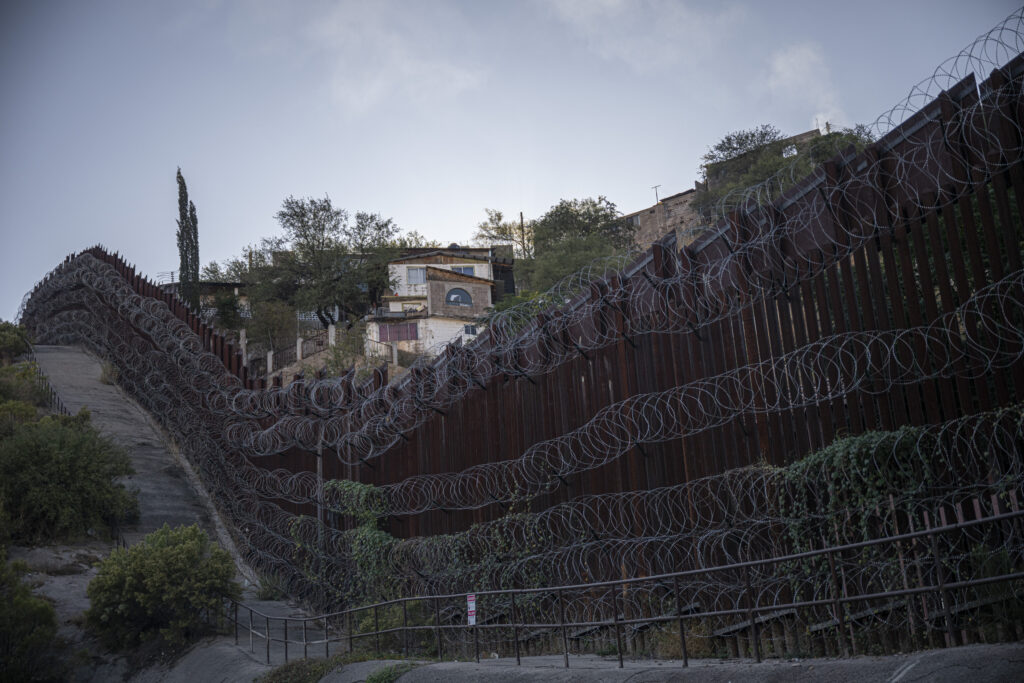President Donald Trump announced severe new restrictions on immigration and asylum in the United States hours after taking office Monday, declaring that he will send troops to the US-Mexico border and attempt to end birthright citizenship.Trump declared a national emergency at the southern border and used a careening press conference in the Oval Office to announce the controversial order seeking to revoke the right of US nationality to anyone born in America.”That’s a big one,” he told reporters.The move to reverse a right enshrined in the US Constitution will face stiff legal challenges, an inevitability the president acknowledged.”I think we have good grounds, but you could be right,” he said when asked about the pushback.Another executive order declared a national emergency on the US-Mexico border.”I’m fine with legal immigration. I like it. We need people, and I’m absolutely fine with it. We want to have it,” he said.”But we have to have legal immigration.”Earlier, in his inaugural speech, he announced he would be sending troops to the US-Mexico border “to repel the disastrous invasion of our country.” “All illegal entry will immediately be halted, and we will begin the process of returning millions and millions of criminal aliens back to the places from which they came,” he said.White House deputy press secretary Anna Kelly announced earlier that the administration would end the practice of granting asylum.- Appointments canceled -The first effects of Trump’s stance became apparent minutes after his inauguration when an app unveiled under president Joe Biden to help process asylum seekers went offline.US media reported 30,000 people had appointments scheduled.Trump’s key adviser and noted immigration hardliner Stephen Miller took to social media to announce that the doors were shut.”All illegal aliens seeking entry into the United States should turn back now,” he wrote.”Anyone entering the United States without authorization faces prosecution and expulsion.”Kelly said the administration would also reinstate the “Remain in Mexico” policy that prevailed under Trump’s first administration.Under that rule, people who apply to enter the United States at the Mexican border were not allowed to do so until their application had been decided.On the US-Mexican border, there was despair.”Since we are here, please let us in,” said Yaime Perez, a 27-year-old Cuban.”Please, after all the work we have put in to get here, let us enter your country, so that we can better ourselves in life and be somebody,” she said.- Court challenges -Kelly said Trump would seek to use the death penalty against non-citizens who commit capital crimes including murder.”This is about national security. This is about public safety, and this is about the victims of some of the most violent, abusive criminals we’ve seen enter our country in our lifetime, and it ends today,” she said.Many of Trump’s first-term executive actions were rescinded under Biden, including one using so-called Title 42, implemented during the Covid pandemic preventing almost all entry to the country on public health grounds.The changes under Biden led to an influx of migrants, with images of thousands of people packing the border area.Trump frequently invoked dark imagery about how illegal migration was “poisoning the blood” of the nation, words that were seized upon by opponents as reminiscent of Nazi Germany.Analysts say any effort to alter birthright citizenship will be fraught.Aaron Reichlin-Melnick, a senior fellow at the American Immigration Council, said the 14th Amendment was “crystal clear” in granting citizenship to anyone born in the United States with the exception of children of foreign diplomats. “We have had birthright citizenship for centuries, and a president cannot take it away with an executive order,” he told AFP. “We expect rapid court challenges.”
Tue, 21 Jan 2025 02:15:01 GMT
